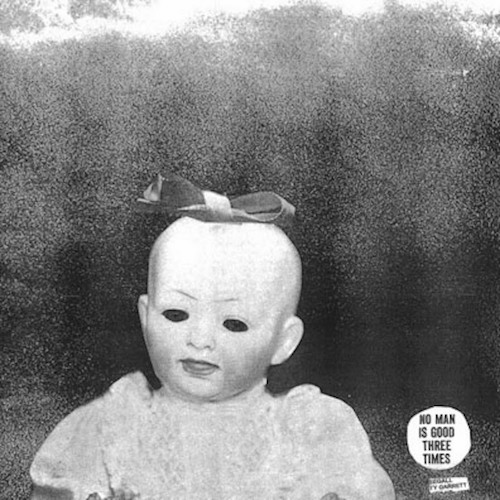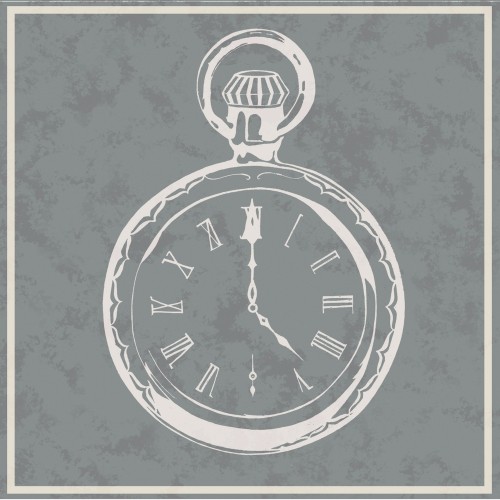 Release Date: August 20, 2013
Release Date: August 20, 2013





Chicagoans may only know of O’Brother from musing about the band’s first album, Garden Window, but they got a true taste of the band’s huge sound at Lollapalooza this year, where onlookers were treated to work from its soon-to-be-released sophomore album, Disillusion.
With three guitarists, one might assume O’Brother’s sound would be cluttered, but it’s so pointedly composed and surprisingly simple that it’s hard to notice the multitude of guitars when caught in the midst of this wholly atmospheric album.
Disillusion slides slowly in with “Come Into the Divide.” Mystical and fading riffs dance around the white noise of a rolling snare drum and lead singer Tanner Merritt’s eerie falsetto coos and whispers abstract lyrics.
The weird ambiance of “Come into the Divide” could be the soundtrack to an ancient and sacred journey. If so, the dark wanderer of the album’s cover art would be our protagonist.
The distant sounds of “Come Into the Divide” crunch and fall apart, only to be picked up and put back together by “Parasitical.”
The creepy riffs of “Come Into the Divide” continue, only now with a fervor, and a driving progression locks in with a syncopated drum beat with anthemic power. Merritt’s vocals push with intensity against some parasitic thing, and thusly does the journey of our protagonist begin with violence.
The following track, “Context,” still fits with the flow, key, and style of “Parasitical,” so seamlessly that it’s hard to tell a new song has even started. In a conclusive way, Merrit lets out long wails akin to Thom Yorke over a metal-inspired post-rock progression, which melts away into a slow, chugging, doom-metal outro.
Even after this end, “Perilous Love” picks up where the bulk of “Context” left off, this time with guitars soaked in tremolo that waver alongside righteous heavy chugs. With that, the first part of the protagonist’s voyage ends.
Disillusion takes a calmer turn on “Path of Folly.” This track undoubtedly brings to mind Muse and Radiohead, though it is still quite distinctly O’Brother’s sound and doesn’t step on any toes in the process.
The sound of Disillusion is groovy, repetitive, and steeped in thick tones. “Oblivion” begins with these groovy rhythms and continues expanding until it reaches a heavy plateau. It then drives directly off this precipice, landing in quiet and desolate territory. The eerie foreshadowing of “Come Into the Divide” manifests as this slow bridge connecting the precipice to the final moments of “Oblivion,” where the splashing and crashing of cymbals elevates alongside the howling vocals belted out by Merritt.
There is an exacted flow to Disillusion, and this journey our wanderer has taken is possible only with such consistency. The depression of the bridge in “Oblivion” wouldn’t be able to launch upward if it weren’t for the ground laid in the previous songs. One can see where O’Brother may have been inspired by the ultra-quiet moments of a King Crimson record that blast back into incredible volume on songs like “21st Century Schizoid Man.”
Similarly, the punishing end moments of “Context” wouldn’t hit as hard if it weren’t for the entire context set by the first two tracks, in the same way Pink Floyd’s “Eclipse” wouldn’t be what it was without the perfect trajectory of every prior track on Dark Side of the Moon.
O’Brother was admittedly on a “Pink Floyd kick,” during the recording of Disillusion. The album’s flow and its ethereal nature, although sounding nothing like Pink Floyd or King Crimson, certainly drew inspiration from their work.
The final stint for our wanderer begins with the the title track, “Disillusion.” The giant, violent post-metal build-up is the highest point of the album. The fall-out of this last conflict can be found in “Absence,” a calm, albeit chaotic, song that seems to fall into the disillusionment that this entire album encompasses.
The redemption of this is the final track, “Radiance.” To solidify and resolve every dissonant moment, “Radiance” raises into ambiance from the chaos of “Absence” and fades out, jsut as the album faded in.
All in all, Disillusion is a journey worth taking, and O’Brother is a band worth keeping an eye on.
O’Brother – Disillusion tracklist:
- “Come Into The Divide”
- “Parasitical”
- “Context”
- “Perilous Love”
- “Path of Folly”
- “Oblivion”
- “Transience”
- “Disillusion”
- “Absence”
- “Radiance”


